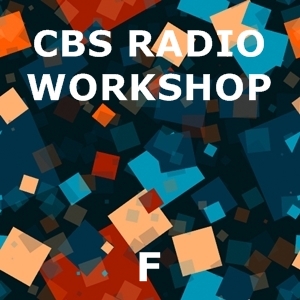Fire at Malibu
Original script: William N. Robson
Originally aired: 20 January 1957
Plot synopsis: Fire fighters battle a raging fire in California.
Favourite line: 'At 2.40 am, her switchboard lit up like the Christmas tree she had turned off before leaving for work a few hours ago.'
Review: Based on true-life events, this episode presents a realistic tale of a major natural disaster and the heroism of those whose job it is to deal with the crisis. Not a terrible episode, by any means, but there are a couple of significant problems with it nonetheless. First, despite the overall quality of the script, as well as William Conrad's narration, it's all a little dry and worthy, and even slightly dull. Second, and what I found to be the main downside, is that this felt essentially like a re-run of an earlier CBS Radio Workshop episode, Storm. The latter - as its title indicates - is not about a fire, but a severe storm, yet even so, the story is very similar: it's told in the same way and even has the same narrator. As such, anyone who has heard Storm will get a strong sense of déjà vu and may well feel that there's not much value in listening to this episode as well.
Rating: * *
1489 Words
Authors: Various (see below)
Originally aired: 10 February 1957
Plot synopsis: William Conrad reads extracts, totalling 1489 words, set to music from four different sources: Alfred Noyes' 'The Highwayman', Elizabeth Barrett Browning's 'Sonnet 43' from Sonnets from the Portuguese, Thomas Wolfe's 'The Thunder of Imperial Names' from Of Time and the River, and 'Silence' by an unknown Japanese poet.
Favourite line: 'The butterfly sleeps on the temple bell.'
Review: Some CBS Radio Workshop episodes I admire more than truly like. I appreciate greatly the series' willingness to experiment, with both form and content, and yet ... in truth, the best episodes tend to be those that stick with a straightforward narrative structure. So, while I enjoyed the music - by Jerry Goldsmith - and some of the poetry and prose in this episode, overall I was not swept away by it, and have no great desire to listen to it again. A particular issue with the episode is that there are no obvious connections between the four passages that are read out, which is shown by the fact that its title does not highlight any unifying ideas or themes, but simply offers a word count of the script! I wondered at the start if 1489 words would have any greater significance than this, but by the end it is obvious that no, it does not.
Rating: * * *

